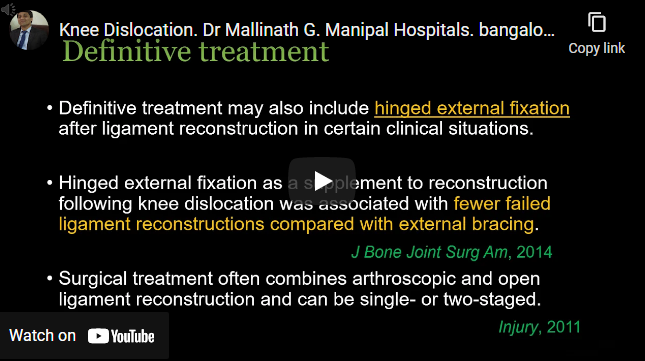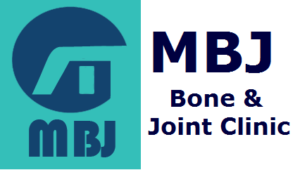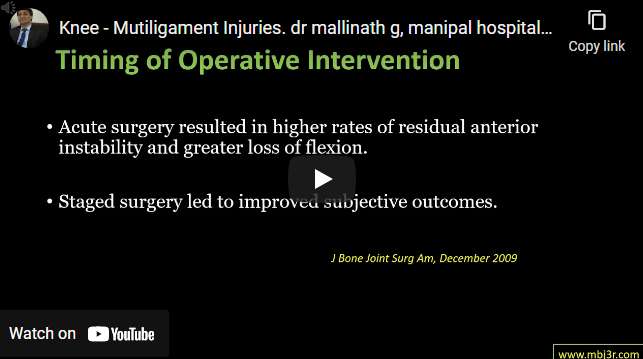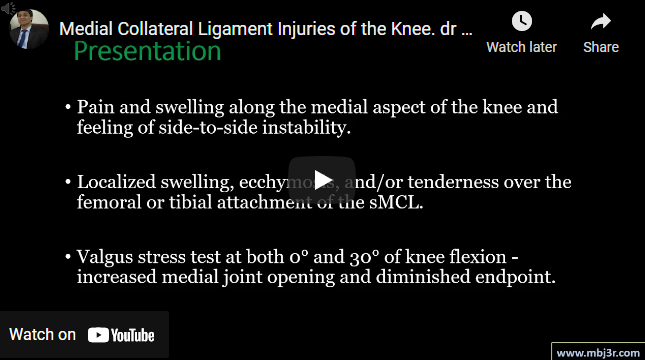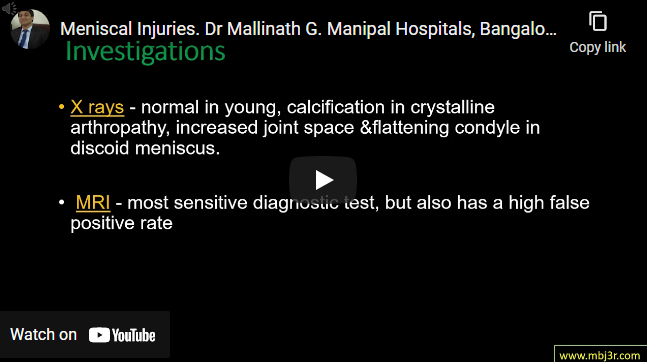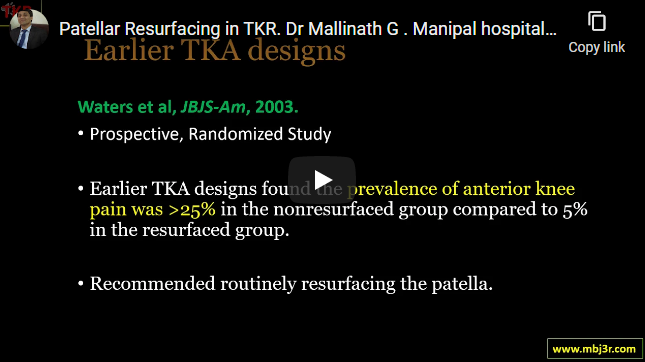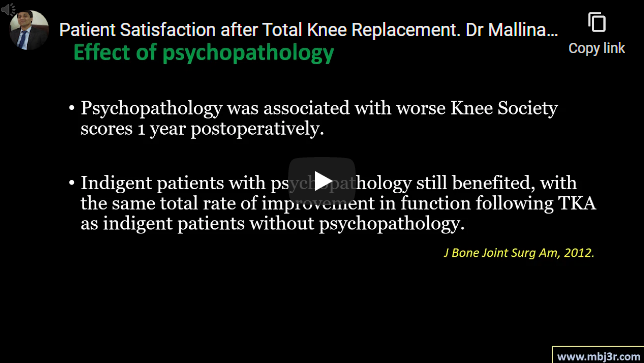High-energy vehicular trauma and Sport injuries Diagnosis is clinical MRI to confirm multiligament knee injury Injury to CPN and popliteal artery External fixation if Soft tissue envelope compromised, If reduction cannot be maintained and To assist with protecting a vascular repair Surgical treatment often combines arthroscopic and open ligament reconstruction and can be single- or two-staged Functional outcomes are depended…
